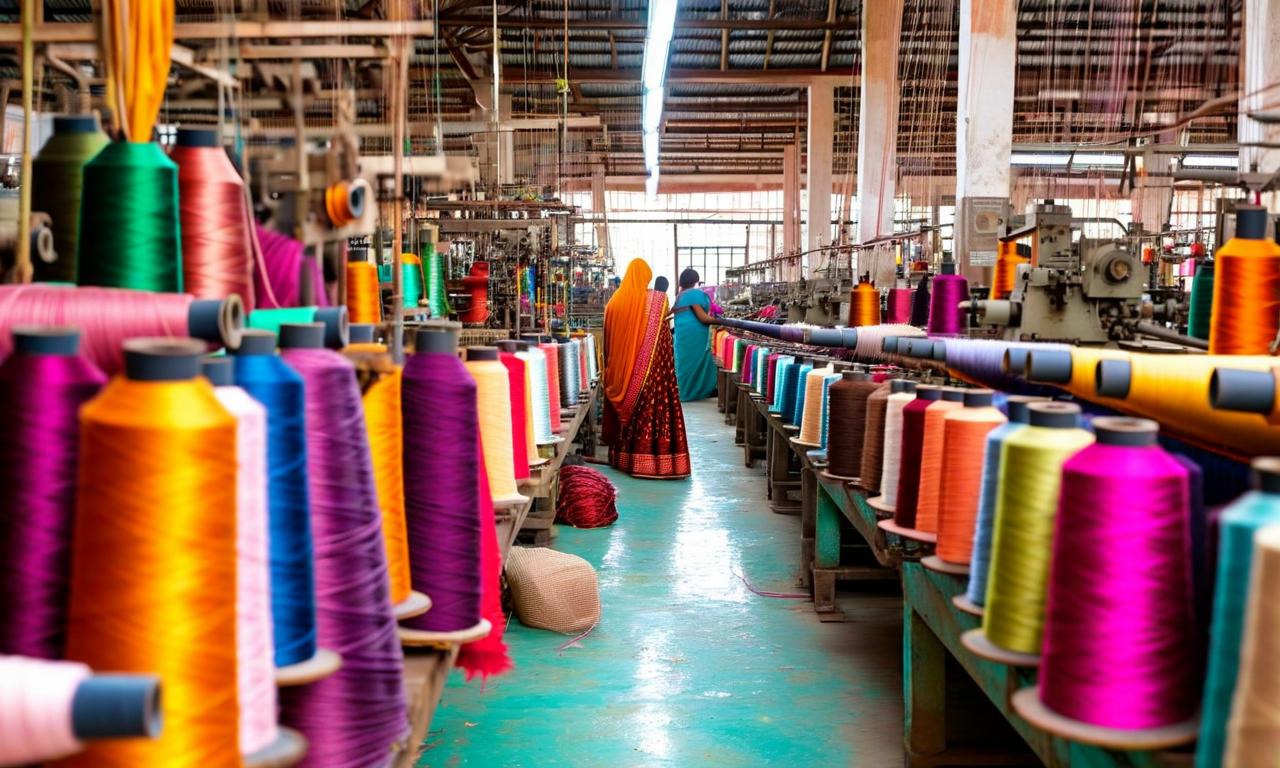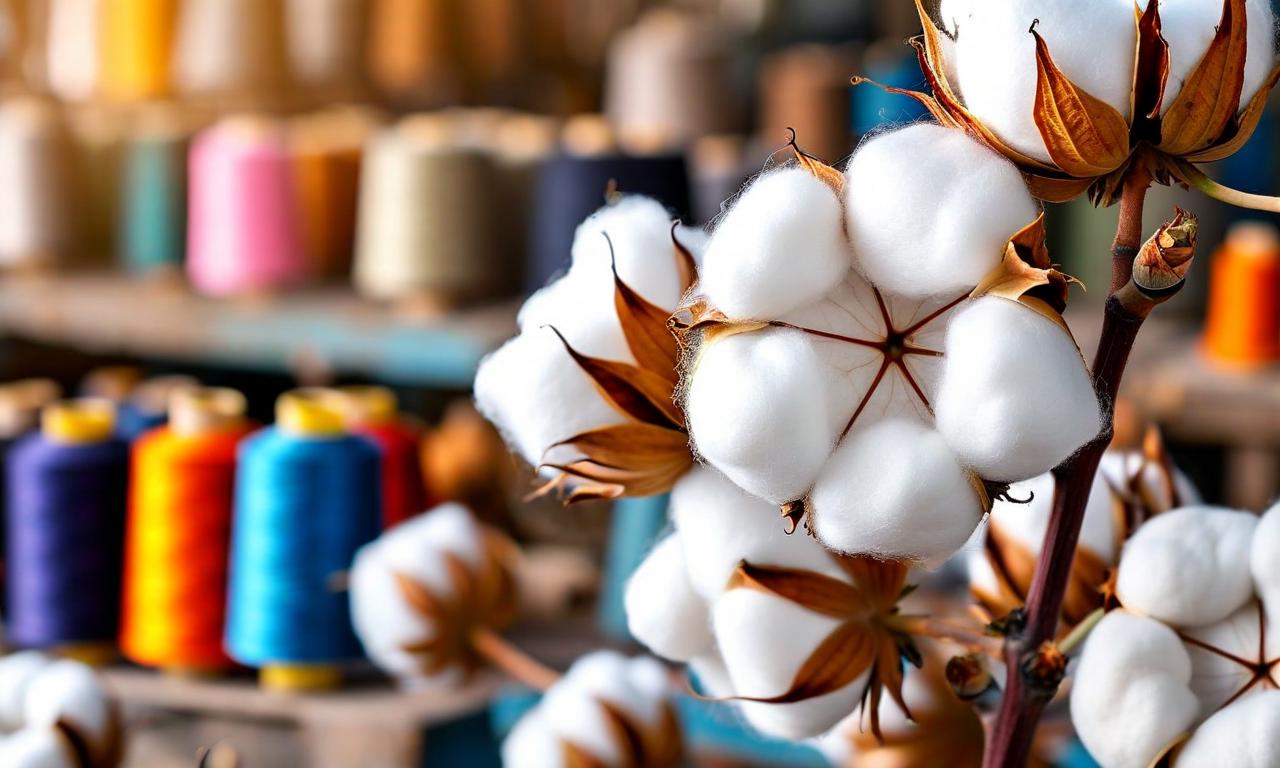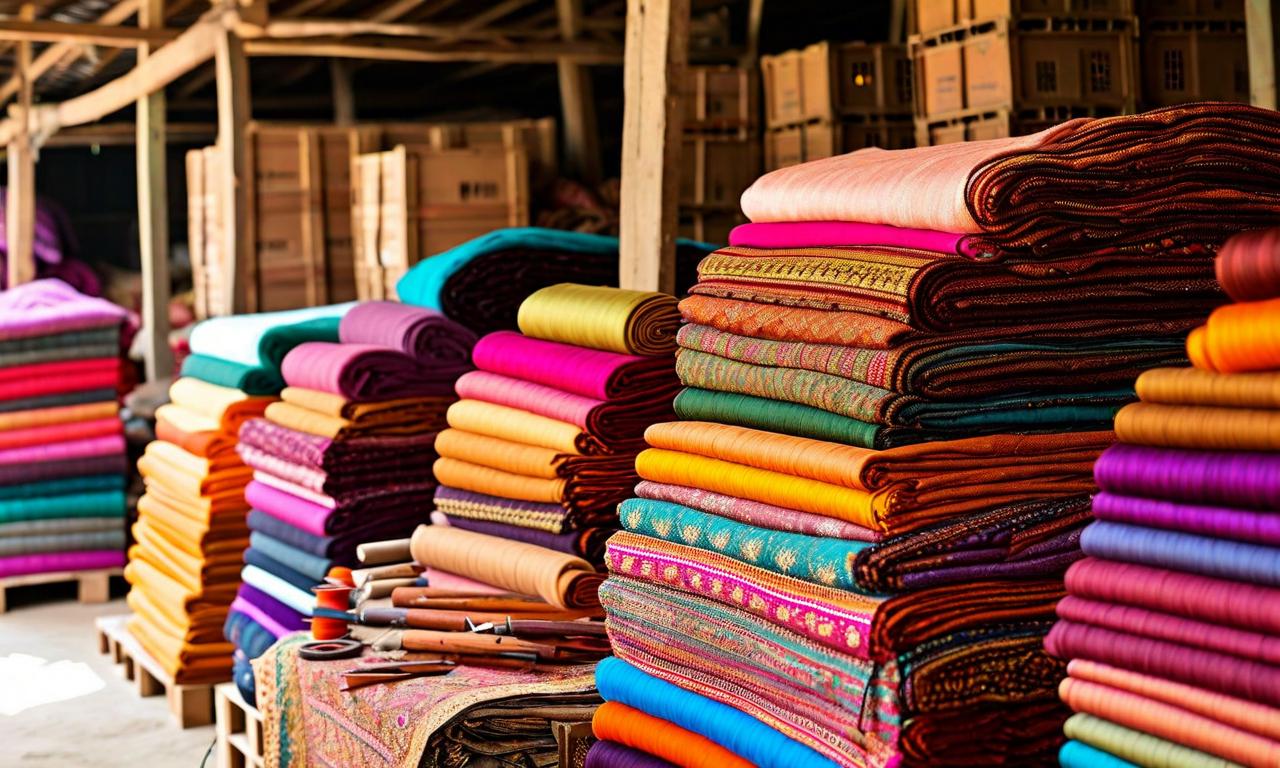India Targets 40 Key Markets in Textile Export Diversification Drive
India is initiating an outreach program targeting 40 major textile-importing countries in response to a 50% tariff hike on Indian goods by the US. The US tariffs are expected to affect Indian exports worth over $48 billion across various sectors. India currently holds a 4.10% share in the global textile trade. The outreach program aims to position India as a reliable supplier in the global textile market, connecting major production hubs like Surat, Panipat, Tiruppur, and Bhadohi with overseas opportunities. India's textile and apparel industry, valued at $179 billion with $37 billion in exports, seeks to boost its global competitiveness and diversify its export portfolio through this initiative.

*this image is generated using AI for illustrative purposes only.
India is set to launch an ambitious outreach programme targeting 40 major textile-importing countries, including the UK, Japan, South Korea, Germany, and Canada. This strategic move comes in response to a recent 50% tariff hike on Indian goods by the United States, which is expected to significantly impact Indian exports.
Impact of US Tariffs
The newly imposed US tariffs are anticipated to affect Indian exports valued at over $48.00 billion. This substantial impact extends beyond textiles, encompassing other crucial sectors such as gems and jewellery, shrimp, leather, footwear, and machinery.
Global Textile Trade Position
Currently, India holds a 4.10% share in the global textile trade. The 40 countries targeted in this new initiative collectively account for more than $590.00 billion in global textile imports, presenting a significant opportunity for market expansion and export diversification.
Strategic Outreach
The Indian government's approach involves a coordinated effort between export promotion councils and Indian diplomatic missions abroad. These entities will spearhead efforts to position India as a reliable supplier in the global textile market. Their initiatives will include:
- Conducting comprehensive market mapping
- Linking major Indian production hubs to overseas opportunities
- Showcasing India's textile manufacturing capabilities
Key Production Centers
The outreach programme will highlight India's prominent textile production centers, including:
- Surat
- Panipat
- Tiruppur
- Bhadohi
These hubs will be directly connected with potential opportunities in the target countries, leveraging their unique strengths and specializations.
Industry Overview
India's textile and apparel industry is a cornerstone of the country's manufacturing sector:
| Metric | Value |
|---|---|
| Total Industry Size | $179.00 billion |
| Export Contribution | $37.00 billion |
This new initiative aims to boost the export contribution significantly by tapping into new markets and strengthening India's position in existing ones.
Looking Ahead
As India embarks on this strategic export diversification, the move is expected to not only mitigate the impact of the US tariffs but also to enhance India's global competitiveness in the textile sector. The success of this initiative could pave the way for a more resilient and diversified export portfolio, reducing dependency on any single market.
The coming months will be crucial as India rolls out its outreach programmes, with the potential to reshape the landscape of global textile trade and bolster India's position as a key player in the international textile market.


























